Luxembourg is a small, landlocked country located in Western Europe. Here is a detailed description of Luxembourg:
- Geography:
- Location: Luxembourg is situated in the heart of Western Europe, bordered by Belgium to the west and north, Germany to the east, and France to the south.
- Land Area: It is a relatively small country, covering an area of around 2,586 square kilometers (998 square miles).
- Terrain: Luxembourg is characterized by rolling hills and dense forests. The Ardennes, a region of extensive forests, occupies the northern part of the country.
- Capital and Cities:
- Capital: Luxembourg City is both the capital and the largest city of the country. It is known for its medieval fortifications and historic quarters.
- Other Cities: Esch-sur-Alzette is the second-largest city and plays a significant role in Luxembourg’s industrial landscape.
- Population:
- Demographics: As of my last knowledge update in January 2022, Luxembourg had a population of approximately 634,000 people. The population is diverse, with a mix of Luxembourgish nationals and a significant number of expatriates due to its role as a financial and administrative hub.
- Languages:
- Official Languages: Luxembourg has three official languages: Luxembourgish, French, and German. Luxembourgish is the national language, while French and German are used for administrative and official purposes.
- Government:
- Political System: Luxembourg is a constitutional monarchy with a parliamentary democracy. The Grand Duke is the head of state, and the Prime Minister is the head of government.
- European Union: Luxembourg is one of the founding members of the European Union and hosts several EU institutions.
- Economy:
- Financial Hub: Luxembourg has a highly developed and stable economy. It is renowned for being a global financial center, particularly in the fields of banking and investment funds.
- Steel Industry: Historically, Luxembourg had a significant steel industry, but over the years, the focus has shifted to finance and services.
- Culture:
- Heritage: Luxembourg has a rich cultural heritage influenced by its history and the coexistence of different linguistic and cultural groups.
- Festivals: The country celebrates various cultural events and festivals, and it is known for its vibrant arts scene.
- Transportation:
- Public Transport: Luxembourg has an efficient public transportation system, including buses and trains. Luxembourg City has a well-developed network of buses and a tram line.
- International Airport: Luxembourg Airport is a major international hub, facilitating air travel.
- Tourist Attractions:
- Historic Sites: Luxembourg City’s old town and its fortifications are UNESCO World Heritage Sites.
- Natural Beauty: The Ardennes region offers picturesque landscapes, with hiking and outdoor activities.
- Quality of Life:
- High Standard of Living: Luxembourg is known for its high standard of living, with a strong focus on education, healthcare, and social welfare.
In summary, Luxembourg is a small but prosperous country with a diverse cultural heritage, a strong economy, and a strategic position in Europe.
Vectormap.Net provide you with the most accurate and up-to-date vector maps in Adobe Illustrator, PDF and other formats, designed for editing and printing. Please read the vector map descriptions carefully.

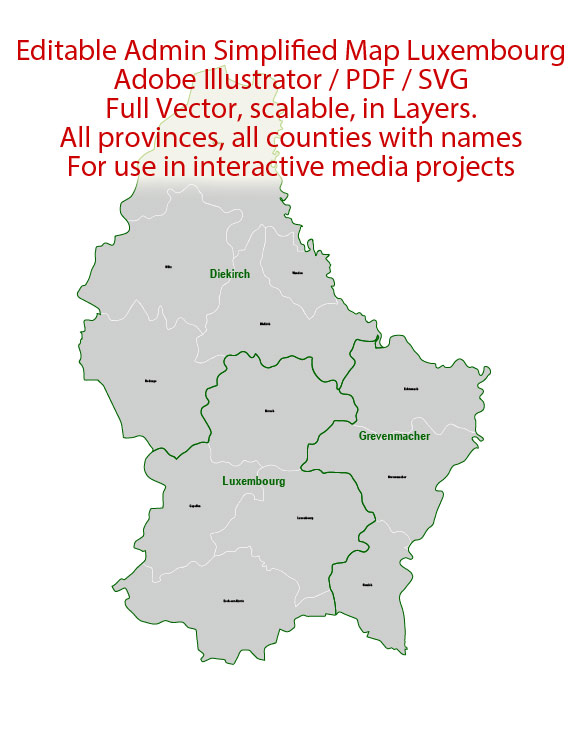
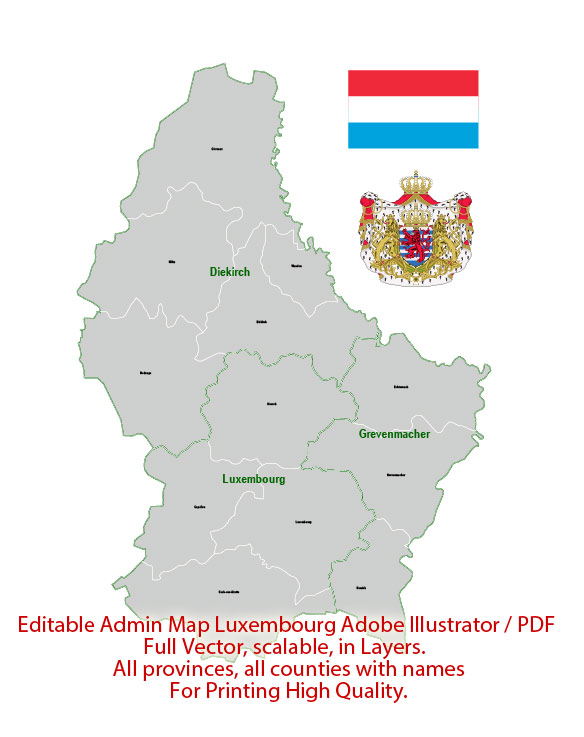
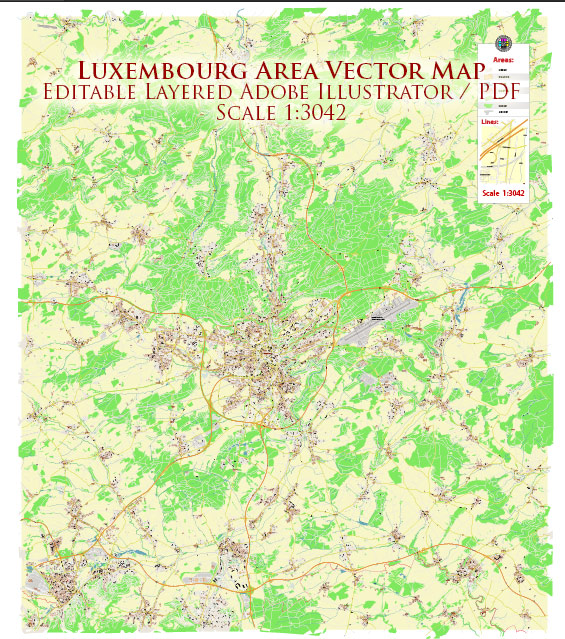
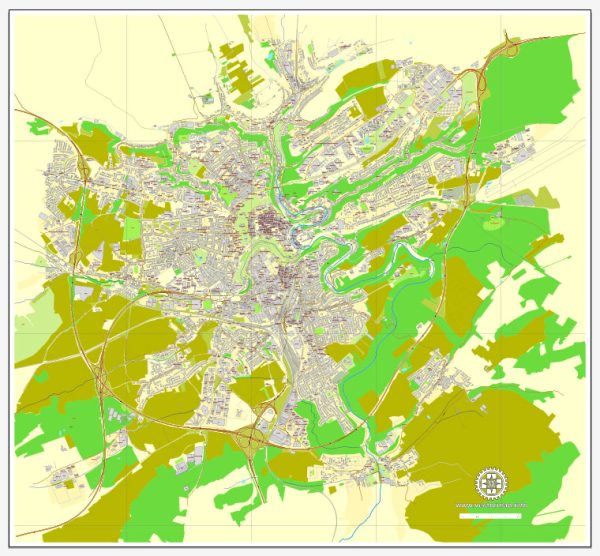

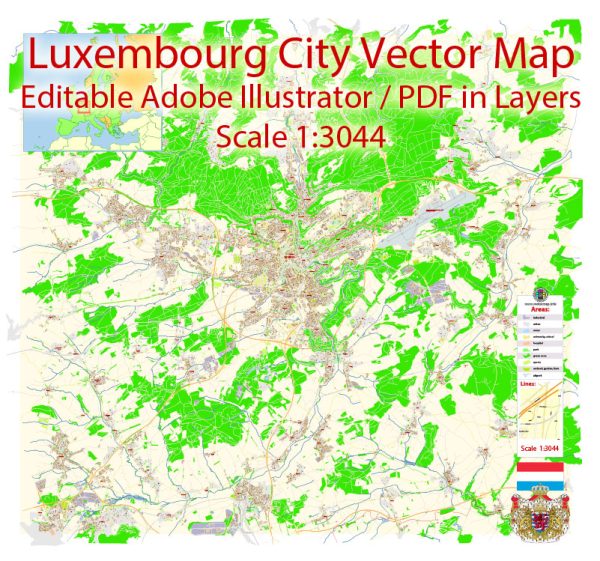
 Author: Kirill Shrayber, Ph.D. FRGS
Author: Kirill Shrayber, Ph.D. FRGS